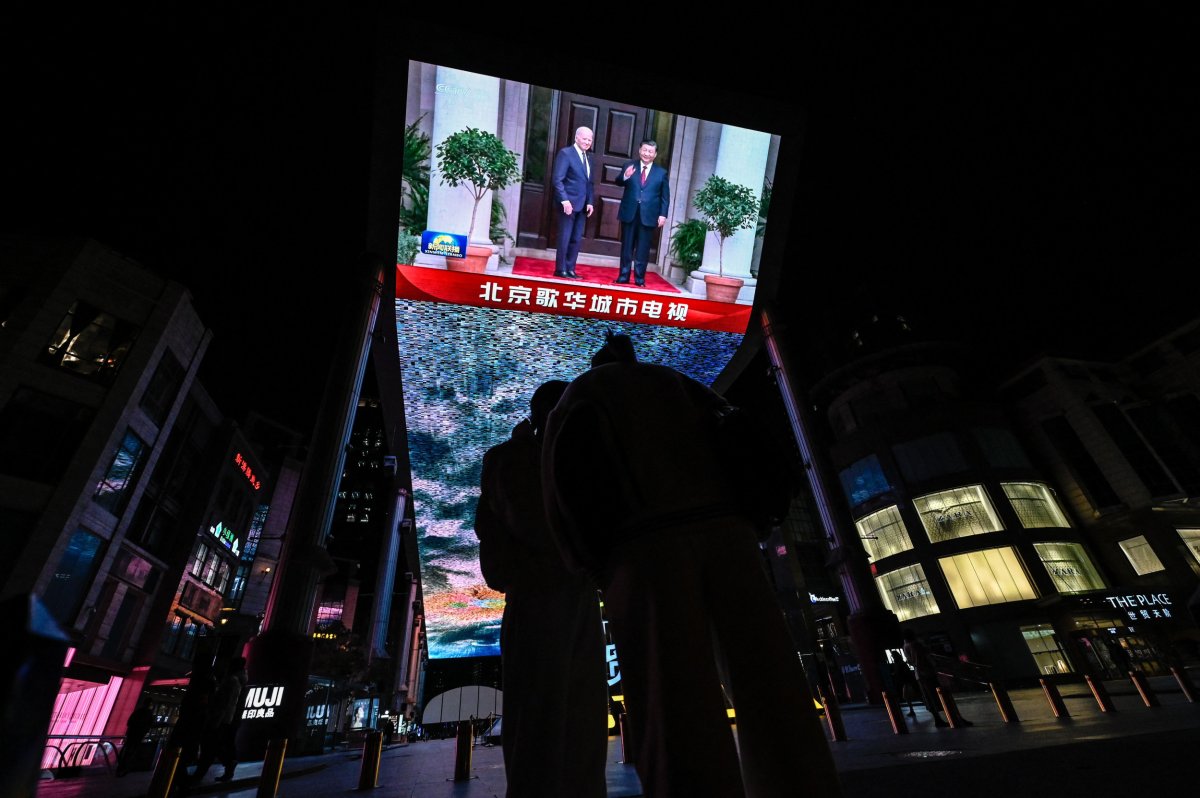President Joe Biden met with Chinese President Xi Jinping around the APEC conference in a highly anticipated engagement designed to stabilize relations between geopolitical rivals competing for primacy on the world stage. How these leaders manage the bilateral relationship between the world's dominant powers may well determine the arc of peace and prosperity, or conflict and chaos, for decades. The results of the talks appear to have been positive. From the perspective of a veteran of past conflicts and negotiations, responsible dialogue between two responsible leaders is a non-bloody step in the right direction.
The stakes are high. For Xi, wrestling with significant economic, political, and demographic crises at home, and questions about overreach in his ideological campaign to achieve global supremacy by the centenary of the founding of the Chinese Communist Party, the meeting posed both danger—exposure of having overplayed his hand—and opportunity—an "off ramp" from great power conflict.
For Biden, the challenges are daunting. Although overseeing the strongest post-pandemic economy globally, he is challenged with sustaining a united front against Russian aggression in Ukraine, deterring a new and potentially expanded conflict in the Middle East, countering a rising China, and a domestic political struggle between authoritarian populism and liberal democracy. Responsibly, Biden knows that a war with China, which would be globally devastating and directly impact the American homeland, is possible but not inevitable.

The reality is that the United States and China are very different countries, with markedly different cultures, politico-economic systems, and interests. These differences can lead to faulty assumptions and misinterpretations of intent, opening the door to potentially tragic consequences.
Each nation claims historical precedent for world leadership: China's centuries of cultural and economic centrality and America's emergence as the leader of the rules-based international order following World War II. The history between our two peoples, often highly cooperative and mutually beneficial, includes periods of disagreement, friction, and conflict. Both nations can point to specific transgressions, real and imagined, that color that history. Consistency and reciprocity have been elusive goals. But, as Xi noted in his opening remarks, "the world is big enough for both China and the United States to succeed."
The bottom line is that Wednesday's dialogue between Biden and Xi, combined with nested deliberations between cabinet, ministry, and military leaders, was the perfect tonic to reopen pathways to grow mutual understanding, prevent miscalculation, and responsibly manage the relationship in the future.
In his post-meeting press conference, Biden noted that the discussions resulted in commitments by Xi to combat fentanyl trafficking, reestablish military-to-military communications, and jointly address the risks posed by artificial intelligence. As importantly, the two leaders discussed the numerous areas where the nation's interests diverge but committed to continued personal engagement.
What of previous agreements? Those who have served and worked in China know firsthand how exquisitely frustrating China can be as a negotiating partner. Contracts and agreements can often be only the beginning of a long struggle. Further, domestic and international stakeholders will see ideological, political, and economic value in highlighting China's current and past perfidy, beating the drums of war, even finding fault with holding the meetings at all. Presidential leadership, patience and resolve are essential.
Biden and his team have approached China with a "trust, but verify" firmness, patience, and a grasp of nuance essential to effectively deal with a sometimes enigmatic Xi and a Chinese culture that most Americans know little about. Talking should not be equated with weakness. We can be tough, maintaining a healthy skeptical realism with China, while also nurturing efforts toward better communication and understanding.
The leaders of the United States and the People's Republic of China, the world's most powerful nations, have met and wisely chosen dialogue and diplomacy over conflict. America's veterans and the men and women currently serving in uniform who, together with their families, will have actual American "skin in the game" in the event of conflict, know from experience the imperative to be ready to respond if called to arms. But their experience also sees wisdom in Churchill's counsel that "meeting jaw to jaw is better than war."
Retired Brigadier General Mark O'Neill is the former defense attache at the U.S. Embassy in Beijing, and now an advisor to the non-partisan Vet Voice Foundation.
The views expressed in this article are the writer's own.
Uncommon Knowledge
Newsweek is committed to challenging conventional wisdom and finding connections in the search for common ground.
Newsweek is committed to challenging conventional wisdom and finding connections in the search for common ground.
About the writer
To read how Newsweek uses AI as a newsroom tool, Click here.





